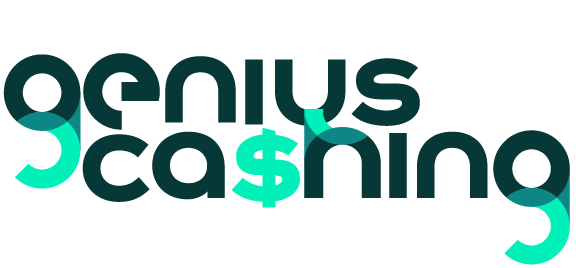How to Use a Business Mentor to Unlock More Public Funding

Anúncios
To use a business mentor to unlock more public funding is a strategic move for entrepreneurs seeking to tap into government grants and subsidies.
In 2025, public funding opportunities have expanded, with governments worldwide allocating billions to support small businesses, startups, and sustainable initiatives.
Yet, navigating the labyrinth of applications, eligibility criteria, and compliance requirements can feel like decoding an ancient script.
A mentor someone with experience, connections, and insight can transform this daunting process into a clear path to success.
This article explores how mentorship can amplify your chances of securing public funding, offering practical steps, real-world examples, and actionable insights. Why settle for struggling alone when a mentor can guide you to the funding your business deserves?
Anúncios
The journey to public funding is not just about filling out forms; it’s about strategy, storytelling, and alignment with government priorities.
A business mentor brings clarity to this process, helping you craft compelling proposals and avoid common pitfalls.
With their guidance, you can position your business as a prime candidate for grants, loans, or tax incentives.
This article will break down the mentorship advantage, from identifying the right guide to leveraging their expertise for funding success. Let’s dive into how a mentor can be your secret weapon in unlocking public resources.
The Role of a Mentor in Navigating Public Funding
A business mentor acts like a seasoned cartographer, mapping out the complex terrain of public funding. They’ve often walked the path themselves, securing grants or advising others on how to use a business mentor to unlock more public funding.
Their expertise helps you avoid dead ends like misaligned applications or missed deadlines that can derail your efforts. Mentors provide insider knowledge on what funding bodies prioritize, such as sustainability or job creation, ensuring your proposal hits the mark.
Beyond technical know-how, mentors offer perspective. They can spot gaps in your business plan that funders might question, from weak financial projections to unclear impact metrics.
++ How to Calculate the “True Value” of Government Assistance
For example, Sarah, a small business owner in renewable energy, worked with a mentor who helped her refine her pitch for a $100,000 government grant.
By emphasizing her project’s environmental impact, she secured the funds. A mentor’s feedback is like a mirror, reflecting your blind spots before funders do.
Mentors also bring emotional support. The funding process can be grueling, with rejections that sting. A mentor keeps you grounded, offering encouragement and strategies to pivot.
They might suggest alternative funding sources, like regional development grants, if your initial application fails. Their role is to keep you focused and resilient, turning setbacks into stepping stones.

Building a Relationship with the Right Mentor
Finding the right mentor is like choosing a dance partner you need someone who matches your rhythm. Start by identifying mentors with experience in your industry or with public funding processes.
Platforms like SCORE or LinkedIn can connect you with seasoned professionals. Look for someone who’s secured grants themselves or has a track record of guiding others to use a business mentor to unlock more public funding.
Once you’ve found a mentor, build trust through clear communication. Share your business goals and funding needs upfront. For instance, John, a tech startup founder, approached a mentor with a clear ask: guidance on applying for a federal innovation grant.
By being specific, he gained tailored advice that led to a $50,000 award. Set expectations early to ensure alignment.
Also read: The Benefits Cliff: How Small Income Increases Can Cost You Big
Consistency is key in mentorship. Schedule regular check-ins to discuss progress, refine applications, or explore new opportunities.
A mentor’s time is valuable, so come prepared with questions or drafts. This shows respect and maximizes their input. Over time, this relationship becomes a partnership, amplifying your funding success.
A mentor’s network can also open doors. They may introduce you to grant officers or industry experts who can provide insider tips.
This access is invaluable, as personal connections often influence funding decisions. Cultivate this relationship with gratitude and professionalism to unlock its full potential.
Crafting a Winning Funding Proposal with Mentor Guidance
A mentor’s guidance transforms a generic proposal into a compelling narrative. They help you align your application with the funder’s priorities, ensuring every word counts.
For example, a mentor might suggest emphasizing your business’s social impact to appeal to a community-focused grant. This strategic focus is critical to use a business mentor to unlock more public funding.
Mentors also help you master the art of storytelling. Funders don’t just want data; they want a story that resonates. A mentor can guide you to weave your business’s mission into the proposal, making it memorable.
Take Maria, who applied for a women-owned business grant. Her mentor helped her highlight her company’s role in empowering local women, securing $75,000.
Read more: How to Use Government Benefits to Offset Startup Costs
Data is your ally in proposals, and mentors ensure you use it wisely. According to a 2023 U.S. Small Business Administration report, 68% of successful grant applications included clear metrics on economic or community impact. A mentor can help you source and present such data effectively, strengthening your case.
Mentors also keep you accountable. They’ll push you to meet deadlines, refine budgets, and double-check eligibility criteria.
Their oversight ensures your proposal is polished and professional, avoiding errors that could lead to rejection. This discipline is a game-changer in the competitive funding landscape.
Leveraging a Mentor’s Network for Funding Opportunities

A mentor’s network is a goldmine for funding prospects. They often know program officers, policymakers, or other entrepreneurs who can point you to lesser-known grants.
By leveraging these connections, you can discover opportunities others overlook, a key step to use a business mentor to unlock more public funding.
For example, a mentor might introduce you to a local economic development agency hosting a grant workshop. Attending such events can reveal funding programs tailored to your industry.
In 2025, many governments are prioritizing green tech and workforce development mentors can guide you to these niche opportunities.
Mentors can also facilitate partnerships. If your business lacks the scale to qualify for certain grants, they might connect you with complementary organizations.
A mentor once helped a small retailer partner with a local nonprofit, qualifying them for a $200,000 community revitalization grant. Such collaborations amplify your eligibility.
Finally, mentors can coach you on pitching to funders. They might role-play a grant interview or review your pitch deck, ensuring you make a strong impression. Their network and coaching give you an edge in securing funds that others might miss.
Avoiding Common Pitfalls with Mentor Expertise
Mentors are your shield against costly mistakes. One common pitfall is applying for grants you’re not eligible for, wasting time and resources.
A mentor can review eligibility criteria, ensuring you focus on viable opportunities. This precision is crucial to use a business mentor to unlock more public funding.
Another trap is vague proposals. Funders reject applications lacking clear objectives or measurable outcomes.
A mentor helps you define specific goals, like “create 10 jobs in two years,” making your proposal stand out. They’ll also ensure your budget is realistic, avoiding red flags for reviewers.
Mentors can spot compliance issues. Many grants require strict adherence to regulations, like environmental standards or financial reporting.
A mentor’s experience helps you navigate these rules, preventing disqualification. For instance, a mentor once saved a startup from rejection by catching an outdated tax document.
Rejections are part of the process, but mentors help you learn from them. They’ll review feedback, suggest improvements, and guide you to reapply or pivot. This resilience turns a “no” into a future “yes,” keeping your funding dreams alive.
Maximizing Funding Impact with Strategic Planning

Once you secure funding, a mentor helps you maximize its impact. They guide you in allocating funds strategically, ensuring compliance with grant terms.
This oversight is vital to use a business mentor to unlock more public funding effectively and sustainably.
Mentors also help you plan for long-term growth. They might suggest reinvesting funds into scalable projects or building partnerships to attract more grants.
For example, a mentor advised a nonprofit to use a $50,000 grant to launch a pilot program, which led to a $500,000 follow-on grant.
Tracking outcomes is another area where mentors shine. Funders often require reports on how funds were used.
A mentor can help you set up systems to measure impact, like job creation or revenue growth, ensuring you meet reporting requirements.
Finally, mentors prepare you for future funding rounds. They’ll help you document successes, creating a strong case for renewals or new grants. This forward-thinking approach ensures your business remains fundable for years to come.
The Power of Mentorship in Building Credibility
A mentor’s endorsement enhances your credibility with funders. Their reputation can signal to grant officers that your business is worth betting on.
This trust factor is a powerful advantage when you aim to use a business mentor to unlock more public funding.
Mentors can also co-sign letters of support or provide references, adding weight to your application. For instance, a mentor’s endorsement helped a biotech startup secure a $300,000 research grant by validating its innovation. Such credibility is hard to build alone.
Public perception matters too. A mentor can guide you in showcasing your funding success on your website or social media, attracting more support. They’ll ensure your messaging aligns with SEO best practices, boosting visibility.
Moreover, mentors teach you to communicate confidence. They’ll coach you on presenting your business as a leader in its field, whether through grant narratives or public pitches. This polished image makes funders more likely to invest.
Table: Key Benefits of Using a Business Mentor for Public Funding
| Benefit | Description | Example Outcome |
|---|---|---|
| Strategic Guidance | Mentors align proposals with funder priorities. | Secured $100,000 renewable energy grant. |
| Network Access | Connections to grant officers and niche programs. | Discovered $200,000 community grant. |
| Proposal Refinement | Feedback on storytelling, data, and compliance. | Won $75,000 women-owned business grant. |
| Mistake Prevention | Avoids ineligible applications or vague proposals. | Saved application from rejection. |
| Long-Term Planning | Guides fund allocation and future grant applications. | Scaled $50,000 grant to $500,000. |
Conclusion
Securing public funding is like navigating a river treacherous without a guide, but manageable with an experienced navigator.
A business mentor is that guide, offering wisdom, networks, and strategies to unlock resources. From crafting compelling proposals to avoiding costly mistakes, their expertise turns funding dreams into reality.
In 2025, with governments prioritizing innovation and sustainability, the time to leverage mentorship is now. Why struggle alone when a mentor can light the way?
By building a strong relationship, tapping into their network, and applying their insights, you can unlock the full potential of public funding.
Start today find a mentor, refine your approach, and watch your business thrive with the support it deserves.
Frequently Asked Questions
Q: How do I find a mentor for public funding?
A: Look on platforms like SCORE, LinkedIn, or industry events. Seek mentors with grant experience and clear communication skills.
Q: Can a mentor guarantee funding success?
A: No, but they significantly improve your odds by refining proposals, avoiding pitfalls, and connecting you to opportunities.
Q: How long should I work with a mentor?
A: It depends on your goals typically 6-12 months for a funding cycle, with regular check-ins to maintain momentum.
Q: Are mentors expensive?
A: Many offer free or low-cost guidance through programs like SCORE. Paid mentors vary, but their ROI can be substantial.
Q: What if my mentor’s advice doesn’t work?
A: Discuss openly, pivot strategies, or seek a second opinion. A good mentor encourages adaptability and learning from setbacks.
